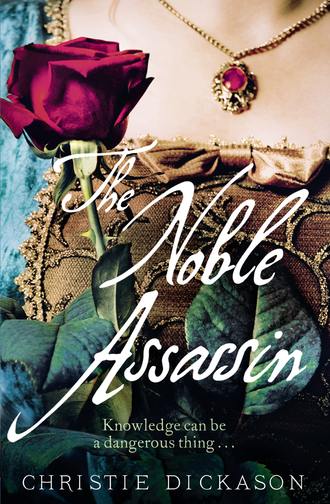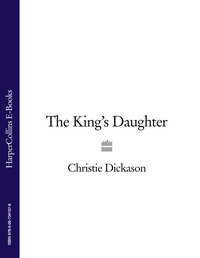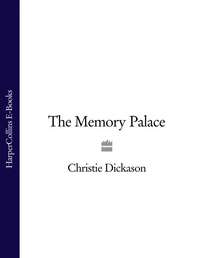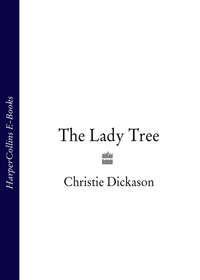
Полная версия
The Noble Assassin
We turn away from the river to return to Bedford House. A passer-by would see only a handsome woman of middle years, in fine but mended clothes, crunching across the ice-filled street attended by a single waiting gentleman, and a maidservant and groom who can scarcely contain their eagerness to get back to the warmth of a fire. He would not have seen a fallen countess who meant to raise ghosts and make them dance again.
Later I lie in my narrow bed on down pillows and feather bed over the base of wool and straw. Agnes has been given a cot in the next room, with her maid on a pallet on her floor while Annie snores on mine. Unable to sleep, I listen to the old familiar night noises of the city. Moor Park already feels distant and a little unreal. The creak of its damp leaning walls and the screams of foxes have been replaced by church bells, dogs, shouts of the night watch, and fainter, more distant voices and music from the tightly packed houses and inns around our walls.
I hear an explosion of shouts in the street. Then abrupt silence.
Perhaps from the Savoy. The derelict hospital stands nearby, across the Strand from Bedford House, its rooms now occupied by vagabonds, criminals, indigent students, and the occasional poet.
I shift my head on the pillows. I will not think about poets tonight.
Tonight, I will not think about loss, only what I hope to regain. I pull the coverlet up to just below my nose, close my eyes and breathe in the resinous smell of pine from the fire that still burns brightly to warm the room. I would make it all happen again.
With the scent of burning pine branches in my nostrils, I again pulled on red silk stockings. Fastened a white heron feather in my hair. Draped a veil. Little by little, Lucy Russell, Countess of Bedford, transformed herself into a magical creature.
It was the masque, Hymenaei, celebrating the marriage of the new young Earl of Essex to the daughter of the Duke of Suffolk, Frances Howard.
I pinned a jewel at the front of my hair. I turned my head. My third eye, my Cyclops eye, flashed and winked. My jewelled shoes turned my steps to bursts of spangled light. Behind me revolved a huge golden globe. ‘Behold the world, how it is whirled round,’ a court poet had written.
We all floated together on the music. The space beneath my ribs grew as large as the sky. We inhaled starlight.
I smiled as I spun past the silent mouthing and hungry, anxious eyes of Ben Jonson, the poet and playwright whose words we sang. Then I spied the straggling locks and thoughtful frown of the court painter Master Jones, the God who had created the revolving world that would soon open like a flower bud. Together we three had made these ‘lies’, as my husband called them. I had defined the terrain, helped to devise the songs. Together, we had waved the wand that transformed the plumpest lady-in-waiting into a goddess for the evening. Following our queen, we floated and spun in a better world than our own until the candles blurred.
At the end of each performance, in the silence after the music died, I would drop heavily back onto my feet, attacked by a vague sadness. But even before my Cyclops eye could be counted back into the Jewel House and the smoky threads of extinguished candles could fade from the air, I was in conference with the Queen about the next masque, display of fireworks or other prodigy of illusion.
I understood the code of royal flattery that must underlie every word and action. I knew that we all worked for the glorification of England. Even the new king, who preferred the hunt to dance, and was an awkward gnome crawled from under a Scottish stone – even he understood how the extravagant glories of our masques made him shine brighter in the eyes of visiting envoys and ambassadors.
But we also made a deeper magic than mere politics. Once I caught even the King watching a forest transform into the undersea kingdom of Neptune, with an open mouth and the eyes of an enchanted child.
When not devising masques or other entertainments, my everyday self had chased after other urgent purpose. The Queen gave me the right to sell positions in her household. I could also sell licences to ship wool, cut wood, or drive your beasts to market in London. I sold monopolies on certain trades. I could collect customs duties and was granted the right to mint coins.
Much of my profit went to repay the Russell debts. But I also made my gardens. I bought paintings and antiquities. I wrote. I debated, sometimes even at the King’s table of wits. I entertained poets and playwrights and threw gold at their metaphors.
Alone in my own chamber in Twickenham or in the apartments the Queen had given me to keep me near her in her own residence at Denmark House, I filled the silence with the sound of my lute or the scratching of my pen. I left no cracks for sadness to take root.
The fire in my chamber at Bedford House is almost dead. The dream music fades but the smell of burning pine remains and is real. I wrap myself in a coverlet and go to put another log on the greying coals of the fire. A piece of rough bark catches and sends up tongues of blue and orange. I will the log to catch.
Then the little tongues of flame stretch out and embrace the log. My entrails unclench. It feels like a good omen. I warm my ankles for a time. A ragged chorus of church bells announces one o’clock.
‘All is well,’ cries the watch.
Amen.
I am on my way back to the good times.
I return to my bed.
I get up again, light a candle from the fire, and search until I find where Agnes has put my little writing chest. Then I put on my old fur-lined robe. I sit on the floor in front of the fire, cooking my face while my back chills, and open the chest.
Now I will test your gratitude, I think as I lay out my paper. Remember who lifted you onto the ladder that led you up to your present power and position.
To the Most Esteemed Lord Buckingham, I write.
To reach the most powerful man in England, I must go through the second most powerful, the King’s favourite, George Villiers, Marquess of Buckingham.
I do not expect trouble. I helped to put George where he is.
Lord Buckingham. My George. How he has risen!
To hold power at court, you must first observe and read those above you to discern their deep desires. Then you fill those desires without seeming to see either weakness or need. And then, you must see off your rivals. When the royal family arrived at last in London, late in the summer of 1603 – King, Queen, and children, with their Scottish courtiers and eager new English ones – the chief enemy of the English courtiers was Robert Carr.
I rise from beside the fire to get my knife. As I sharpen my quill I remember how urgently many of us had wanted to see off this adored favourite of the King, the worst of the loud, greedy, land- and title-grabbing Scots who had trailed down from Scotland behind the new monarch.
Carr was a tall, fair, self-satisfied Scottish lunk, with moustaches like tufted squirrel’s ears. He was far less able than he believed himself to be, a handicap that, nevertheless, did not prevent him from beginning almost at once to believe that he ruled England through the King.
The English soon learned to despise and fear him in equal measure. His word to the King could ruin a man. A wistful sigh could win him another man’s house and lands. Before he died, Cecil, the Chief Secretary of England, had hated the man as much as the rest of us. But it was I who read the King’s desires and found the weapon to bring Carr down – a beautiful, witty, ambitious young Englishman named George Villiers.
Georgie Villiers, a graceful, charming youth whose fragile beauty and well-formed thighs had made more than one lady-in-waiting weep with desire.
Together, I and one of the most powerful lords, with the willing connivance of many others in the English faction at court, had used Villiers as one nail to drive out another.
Anything to see off the wretched, overweening favourite, Carr, we had thought. Dark beauty for fair. Englishman in place of Scot. An amusing wit to leaven the required adoration. Villiers to replace Carr.
I test my newly sharpened nib. There must be no blots or torn places in this letter.
It would give me great pleasure to see you once again . . .
We had sung in the flickering light of candles, the jewelled seawater on our costumes sparking. Cool air caressed my bare ankles. The tall young sea god beside me stroked the bare skin of my arm. I had chosen him from all the other men to be my partner.
I balanced the silk seaweed and gilded shells twined into my hair as we made a reverence to the queen of the Sea, my queen. Joy poured out through my throat. I was safe in a magical place where the whine of growing debt could not be heard. Where men and women could live briefly as creatures better and more marvellous than themselves. Disappointed petitioners, unhappy wives, heart-broken suitors, secret cheats who feared discovery. The bored and the tedious, the ambitious and the hopeless. For a short time, in this shared place out of time, they could all forget their true lives and live in earthly Paradise.
And the ambitious could rise.
I let George Villiers lead me into a dance, with the rhythm of beating waves in our heads and in our blood. George Villiers was rising in the King’s favour and owed it to me. At my side, beside the chief lady of the court, he had become chief lord. He stood at James’s side and I at the Queen’s. The two separate courts, insofar as they mingled, had mingled in us.
He had sworn his undying gratitude. I had seen his beauty and his ambition and drawn him into the court circles. I had trusted him to make the most of the preferment to which I helped him. He knew how I ensured that he always appeared to advantage, as he did that night in a pale glittering costume that gave his eyes a dangerous gleam and showed off his legs.
My baron father was the guardian of the King’s daughter. Poets praised me. I was the Queen’s favourite lady and ruled the revelry of the court. No wonder he thought that he loved me. No wonder I had loved him with the pure heat of a creator. I was the begetter and breeder of his new being as favourite of the King. He was my creation, and my investment in favours owed.
Once, no one could enter the King’s presence without Carr’s consent. Now, George holds the keys. Where he was once my supplicant, I am now his. This reversal of roles follows the natural ebb and flow of favours done and returned, and does not trouble me. My request now, small as it is, should flatter him in his new elevation. In my experience, great beauty dooms a man to vanity, a weakness that can make him malleable. And, besides, he owes me a great deal.
Clever, ambitious Georgie, I think as I sign the letter, Your most grateful and admiring Lucy . . . I hesitate, then add, . . . Russell. Cs. of Bedford.
We would soon see if his sense of gratitude is as finely developed as his thighs.
‘If you wish to achieve power here at court . . .’ I had once stood on tiptoe to breathe into his ear during a pause in the dance, ‘. . . learn to read those above you and divine their deep desires . . . give them what they want without seeming to know that you do so. You won’t be forgiven for seeing weakness or need.’
‘I already know,’ he had said, looking at the King.
I should have been warned then.
Chapter 13
LUCY – THE PALACE OF WHITEHALL, LONDON, 1621
Like a country mouse, I peer into the Great Hall where I once ruled on behalf of my queen. My jewels, which felt so overdone in Hertfordshire, shame me here in Whitehall. I advance from the door, past dense clusters of men, some of them friends, some not.
I nod to the tall, thin, soberly dressed figure of Thomas Howard, Earl of Arundel, said by Kit to be wooing Buckingham. He smiles back. Though he ranks far above me, being old nobility amongst all the bindweed knights and barons created by King James (of which my father had been one), Arundel and I share a passion for beautiful things that we cannot afford. He is talking now to the King’s Surveyor, Master Inigo Jones, progressed from designing masques to designing buildings, in what will no doubt prove to be a costly conversation.
Many people think Arundel cold and aloof, but I found him a steady friend when poverty had turned many people against my husband and me. His own experience of childhood poverty may have left him softened by understanding.
I exchange chilly nods with two of the bindweed knights and move on through the packed bodies.
The hall smells worse than a barnyard. I had forgotten the nasal assault of the court. Civet, musk, and herbal waters applied to freshly shaved chins. The reek of anger and aggression seeping out from armpits. Damp wool, leather, foul breath, horse and farting dogs. Woodsmoke overlays the dark heaviness of old ashes and damp stone. Through the open arches and passageways, smells of sewage, rotting weed and fish seep in from the river. The herbs burning on the fire fail to sweeten the air.
On the low dais at the far end of the hall, the King’s empty chair confirms his absence hunting at Royston. George Villiers is standing as close as is possible to the royal chair without actually occupying it. Even if he were not at the centre of a gaggle of courtiers, I would have spied him at once by the bright flashing of diamond buttons and the wide, stiff white-lace collar that sets off his handsome face.
Nearest to him in the crowd stands Cranfield, the Lord Treasurer, looking wary, and the Lord Chancellor, Francis Bacon, nodding and smiling at Buckingham’s words. Buckingham’s brain-sick brother John, now made Viscount Purbeck by the doting King, sits on the edge of the dais, picking at the cuticles of his left hand.
Buckingham’s other brother, Kit, amiable enough if little more than that, stands smiling when other men smile, laughing when they laugh. Though still only a groom of the royal bedchamber he has been promised an earldom by the King. Just behind Buckingham hover two secretaries, ready to note down any licences or patents or letters of favour that his lordship might grant.
The beautiful youth has become a striking man. He is still lean, in spite of the indulgences of James’s court. Since I last saw him, he has grown a neat, elegant stiletto beard and a moustache that flicks up at the ends. These frame his full, sensuous mouth, which – I would have sworn – he has reddened with carmine. His eyes, edged with long thick lashes any woman would envy, shift thoughtfully from face to face as if choosing from a flock of chickens which neck to break for the pot.
He seems more sharply drawn than the men around him, larger than his true size. A five-strand yoke of pearls, like the diamond buttons and red and white fires sparking on his fingers, make him seem a source of light. Even in a daytime doublet of yellow silk, and leather shoes instead of evening silk, he looks as rare and glamorous as a player in a candlelit masque.
My eye had been as good for a man as for a painting when I chose him.
I watch him speak to an eagerly nodding courtier, whose face I do not know. As he does so, he places a casual hand on the back of the King’s chair.
I see no sign of his poor credulous, wealthy new wife, little Katherine Manners, the only daughter and now, on the death of her brother, the sole heir to the Duke of Rutland. However, I spy his monster mother holding court in the far corner of the hall, at the same time she sees me.
I nod coolly to the three-times married Lady Villiers. We loathe each other. She always saw me as an enemy. I despise her for the coarse hunger of her ambition for her entire family as well as her son.
Then Buckingham sees me. He breaks through the circle of courtiers and holds out his hand. ‘Madam! My dearest Lucy! Such a long time!’
Конец ознакомительного фрагмента.
Текст предоставлен ООО «ЛитРес».
Прочитайте эту книгу целиком, купив полную легальную версию на ЛитРес.
Безопасно оплатить книгу можно банковской картой Visa, MasterCard, Maestro, со счета мобильного телефона, с платежного терминала, в салоне МТС или Связной, через PayPal, WebMoney, Яндекс.Деньги, QIWI Кошелек, бонусными картами или другим удобным Вам способом.





